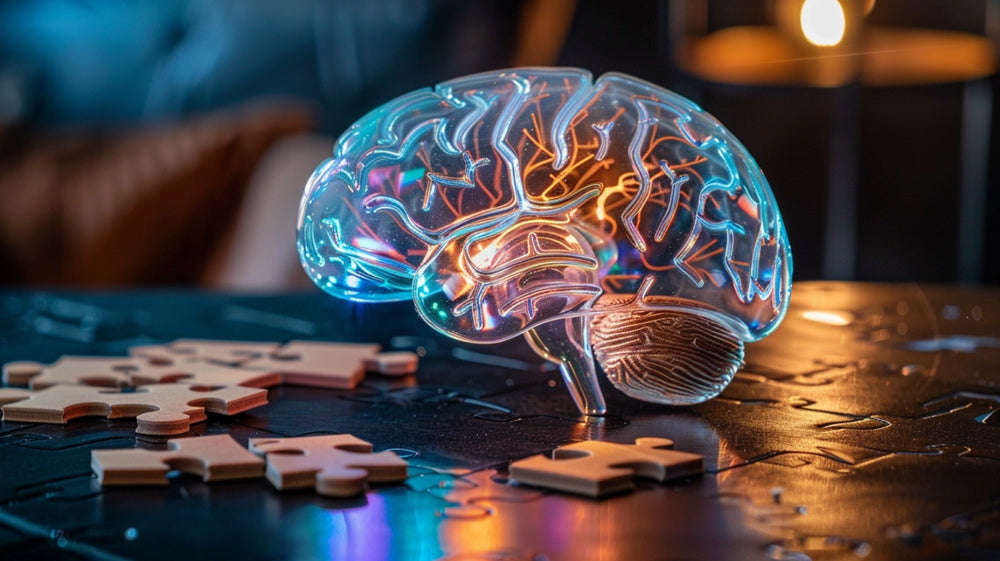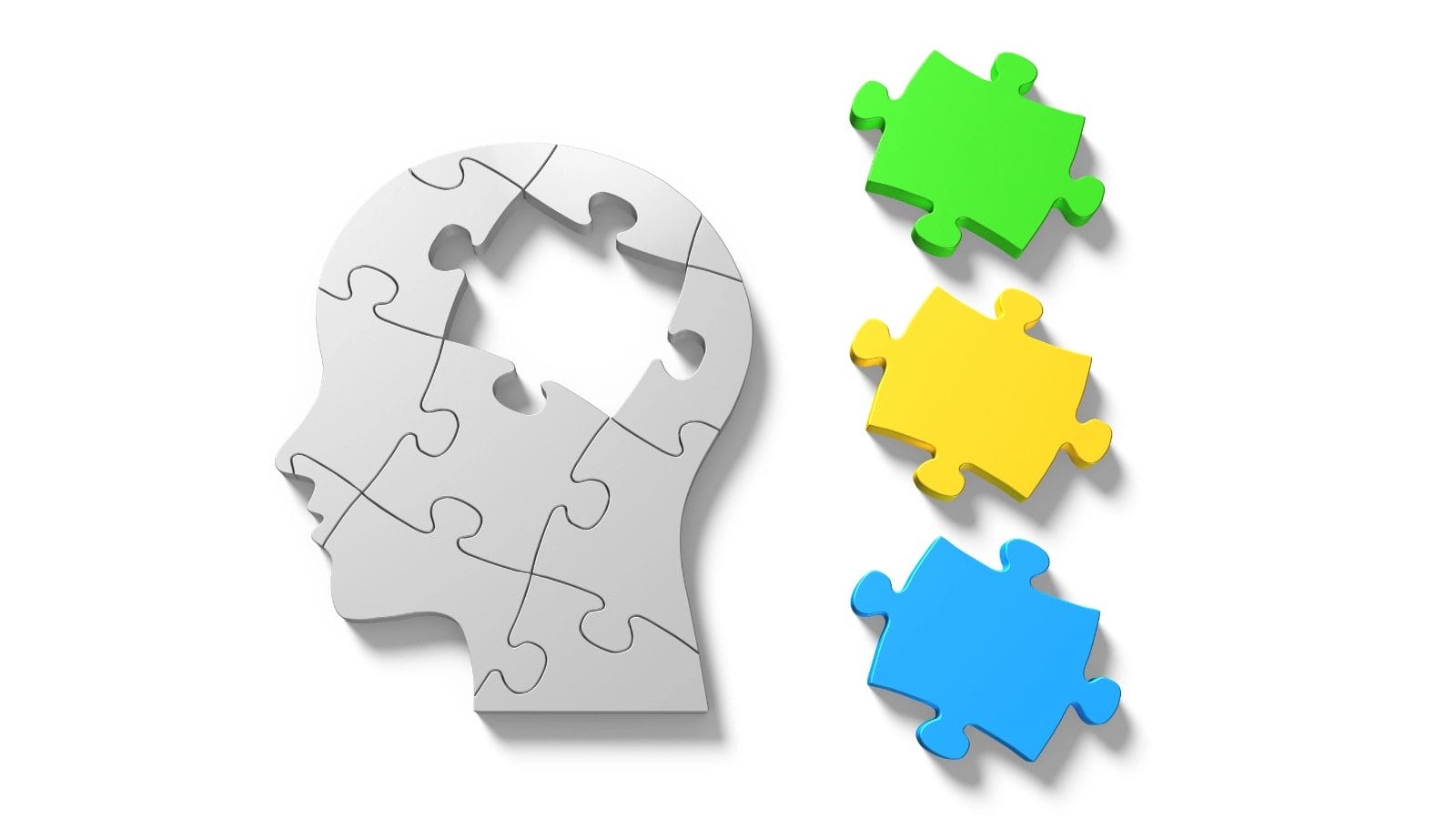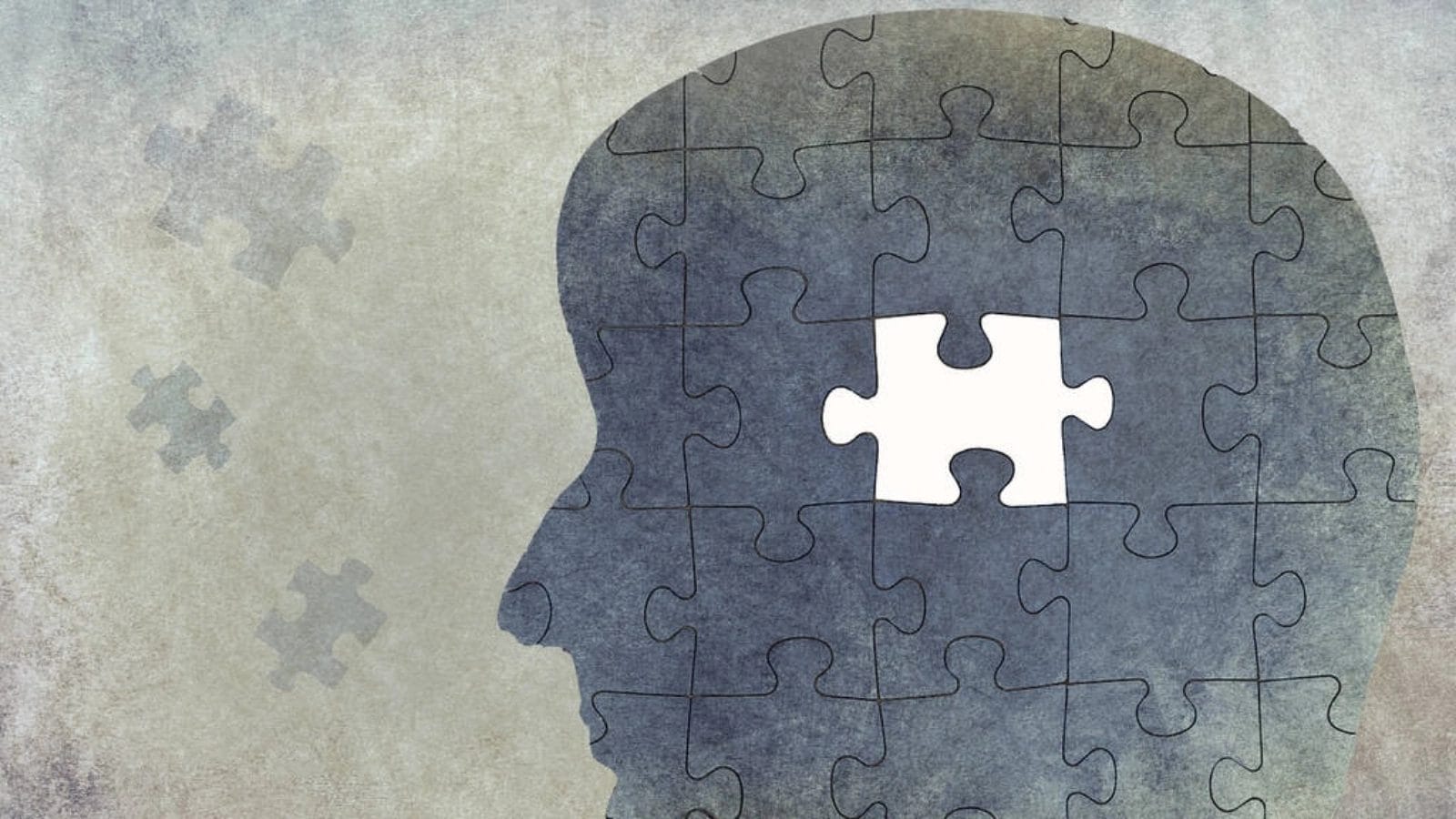
Puzzles have long been a source of entertainment and challenge. But their impact on the brain extends far beyond mere enjoyment. Engaging in puzzles stimulates cognitive functions, enhances problem-solving skills, and promotes neuroplasticity.
From crosswords to jigsaw puzzles, these activities encourage critical thinking and memory retention. They're an effective tool for mental exercise. In this article, we'll delve into how puzzles affect the brain. Let's get started!
Key Takeaways
- Puzzles activate both brain hemispheres simultaneously. They integrate analytical thinking with creative problem-solving abilities.
- Regular puzzle-solving strengthens neural pathways. It can delay cognitive decline by up to 2.5 years.
- Solving puzzles increases dopamine production in the brain. It improves mood, concentration, and mental alertness.
- Puzzles boost memory and help retain information by forming new brain cell connections.
- Solving puzzles helps improve focus and boosts cognitive performance.
How Puzzles Affect the Brain?
The fascinating science behind puzzles reveals their powerful impact on brain function. When you engage with puzzles, you're activating multiple cognitive processes simultaneously.
Your brain forms stronger neural connections as you solve problems. This will enhance your mental speed and memory. Research shows that doing puzzles often can help preserve cognitive abilities and may slow down cognitive decline as you age.
Cognitive Benefits of Puzzles

To begin, let's explore how puzzles can enhance cognitive abilities.
1. Memory Enhancement
Engaging in puzzles regularly can significantly boost your memory and cognitive performance. Solving puzzles will exercise your short-term memory and strengthen vital neural connections.
Your cognitive abilities improve when both sides of your brain collaborate.
2. Problem-Solving Skills
Have you ever noticed how solving a challenging puzzle feels like mental gymnastics? Tackling puzzles regularly strengthens your problem-solving skills through constant trial and error.
Logic problems, math riddles, or engineering challenges develop your analytical thinking abilities. Each solution you discover exercises your brain. It also enhances your capacity to overcome complex challenges effectively.
3. Attention and Concentration
Many people view puzzles as simple entertainment. But their impact on attention and concentration is remarkable.
Working on puzzles naturally sharpens your focus as you analyze patterns and details. Your brain stays alert and engaged throughout the puzzle-solving process. This process trains your mind to maintain sustained attention. This enhanced concentration carries over into other daily activities.
Emotional and Psychological Effects
Beyond cognitive benefits, puzzles are crucial in influencing our emotional and psychological states.
4. Stress Reduction
Puzzles are natural stress-relievers that can transform your mental state. When you engage in puzzle-solving, your blood pressure and heart rate decrease. You're replacing daily tensions with peaceful moments of focus and tranquility.
As a screen-free activity, puzzles help you unwind naturally. This leads to better sleep and relaxation.
5. Mood Improvement
When you solve puzzles, your brain releases a surge of dopamine. It makes you feel good and helps you think clearly.
This neurotransmitter regulates mood, memory, and concentration. The satisfaction of completing a puzzle provides a powerful sense of achievement.
Social Benefits of Puzzle-Solving
When you solve puzzles with others, you'll build stronger communication and teamwork skills.
6. Teamwork and Communication Skills
Puzzles are often viewed as solitary activities. But they offer powerful opportunities for developing teamwork and communication skills.
When you do puzzles with others, you learn to work together and see things from different angles. Puzzles need good talking, listening, and teamwork to solve. Doing them helps you make better social connections with others.
7. Family Bonding and Social Interaction
Puzzles also serve as powerful catalysts for family bonding and meaningful social connections. Whether you piece together a challenging jigsaw or solve a crossword with loved ones, you'll learn together and have interesting talks.
When you tackle puzzles as a group, you strengthen relationships. Meanwhile, you foster a supportive environment that encourages teamwork and open communication.
Neurological Impact of Solving Puzzles

When you solve puzzles, you're engaging both your brain's left and right hemispheres. This creates a powerful mental workout that strengthens neural pathways.
Activation of Both Hemispheres of the Brain
When you solve puzzles, your brain's left and right sides work together like a team. Your spatial reasoning abilities flourish as different parts of the brain work in harmony. They process visual information, language elements, and complex patterns simultaneously.
Delay in Cognitive Decline
Solving puzzles benefits cognitive health much more than just providing entertainment. When you regularly engage in puzzles, you're actively fighting against cognitive decline.
Main Puzzles Across Different Age Groups
As we transition, we'll highlight the main puzzles each age group favors.
Children
From toddler to teenage years, puzzles are important for children's brain growth and school success. Jigsaw puzzles help develop spatial awareness, and word games improve language skills.
Your child can improve their thinking skills with logic puzzles and improve math by playing Sudoku. Each type of puzzle helps them learn in a different way.
Adults
Solving puzzles helps adults, too. Crosswords and jigsaws can often improve brain health.
As you tackle different puzzles, your brain's neural connections strengthen. This will enhance visual reasoning, problem-solving abilities, and mental processing speed.
Elderly
As older adults experience more cognitive difficulties, solving puzzles helps keep their minds sharp. Crossword puzzles can often delay dementia symptoms by about two and a half years.
While puzzles aren't a cure, they strengthen your cognitive function. They can reinforce brain cell connections, improve mental speed, and enhance your logical reasoning abilities.
Conclusion
Puzzles are more than just entertaining pastimes. They're powerful tools for your brain's development and maintenance. When you solve puzzles like pattern matching, riddles, or crosswords, you're strengthening your mind and improving your mood.
Regular puzzle-solving helps keep your brain healthy and makes you think faster. It might protect against memory loss as you get older.
FAQs
What Does Doing Puzzles Do to Your Brain?
Solving puzzles exercises your brain's cognitive functions. It improves memory, problem-solving skills, and strategic thinking. Y
You'll feel happier and strengthen your brain, which might help keep your brain healthy as you age.
What Happens if You Do Puzzles Every Day?
You'll boost your cognitive abilities, improve memory, and strengthen problem-solving skills.
Daily puzzles can slow down dementia and improve your mood by releasing dopamine. They also boost your visual-spatial reasoning and pattern recognition skills.
How Long Should It Take to Do a 1000 Piece Puzzle?
You'll typically spend 8-12 hours completing a 1000-piece puzzle. But it can vary based on your skill level. As a beginner, expect around 20 hours, while advanced puzzlers might finish in 4-6 hours.
Do Puzzles Increase IQ?
Puzzles won't directly increase your IQ. But they'll help improve your cognitive skills and memory. You'll benefit from enhanced problem-solving abilities.